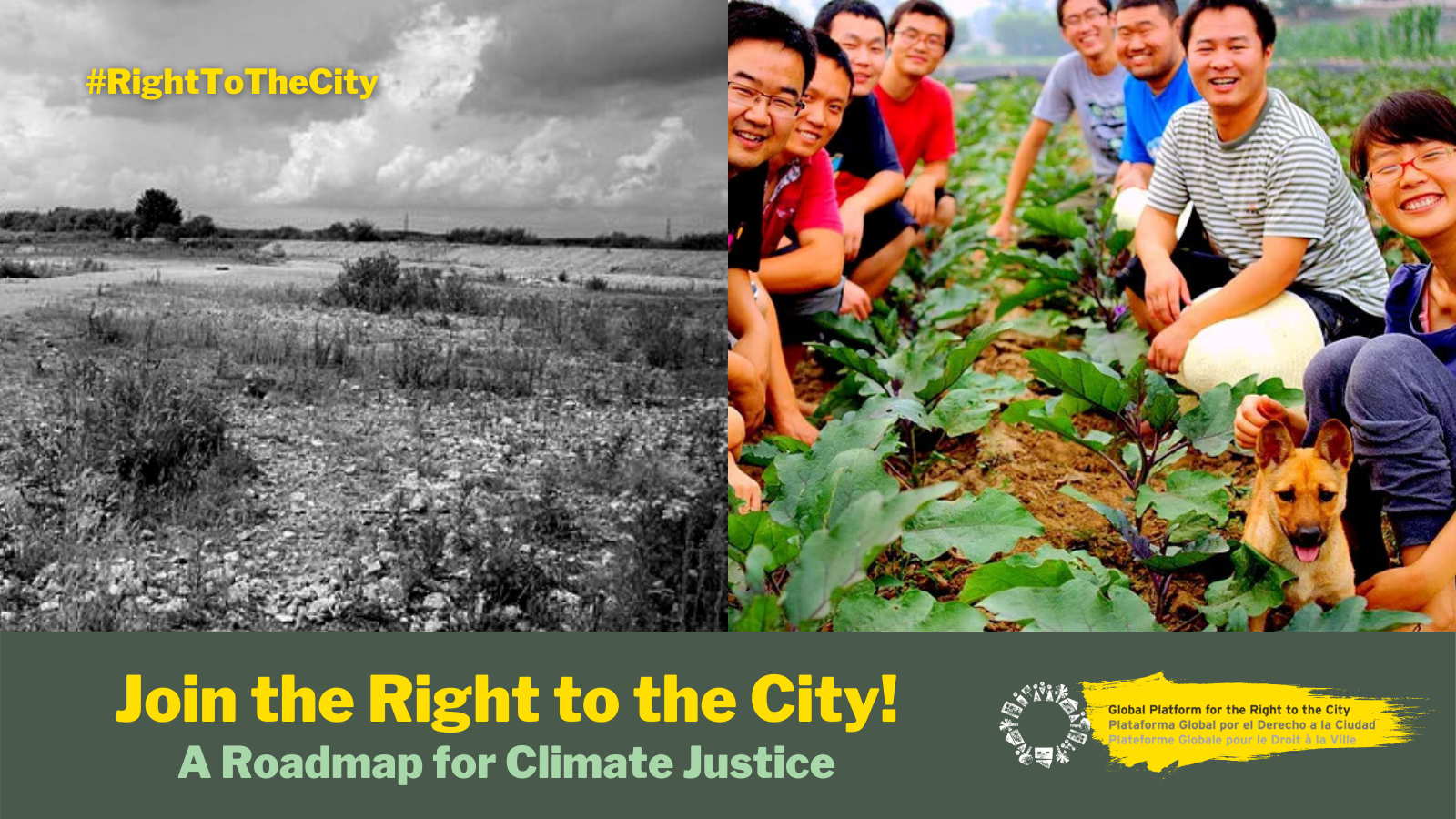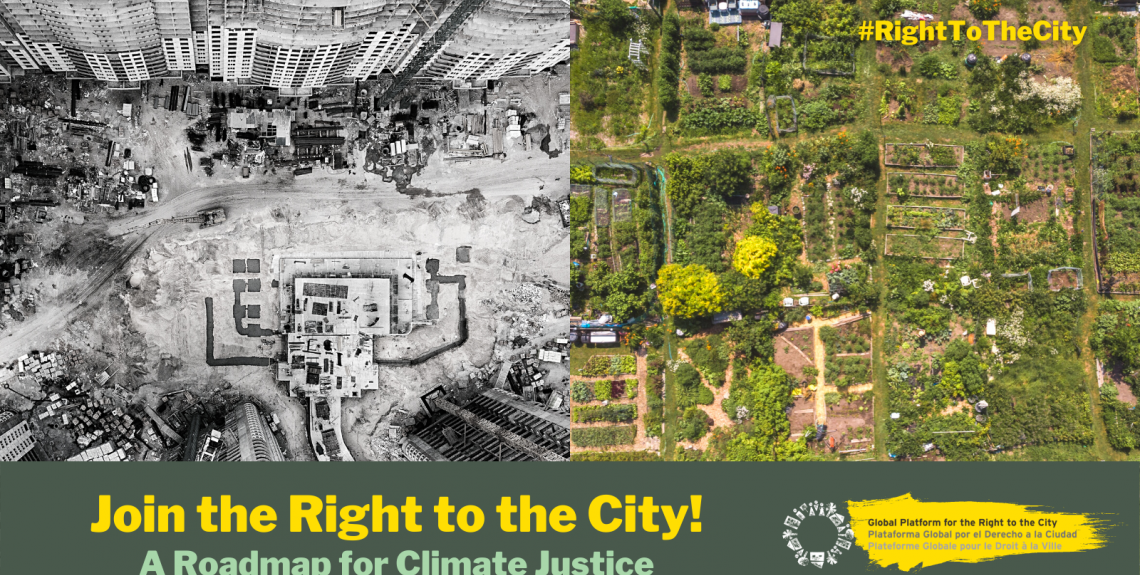In order to celebrate the World Environment Day, we highlight relevant proposals for local governments concerned about the climate emergency and its links with the issues normally addressed by the Committee, including social inclusion, participatory democracy, human rights and the right to the city. These initiatives refer to networking spaces and reflection ressources proposed by key partners of the Committee.
The Committee is set to better address this issue through the update process of the Charter-Agenda for Human Rights in the City (more information here).
Thematic paper published by the Global Platform for the Right to the City on “The Relevance of the Right to the City to Face Climate Change, Global Warming and Environmental Justice”
This thematic paper argues how the right to the city offers a unique framework for collective action in favour of climate justice that puts the planet and people at the center of agendas. The paper assesses current climate challenges from a right to the city perspective, explores existing opportunities in terms of enabling environment for enhanced climate action and introduces successful practices led mainly by grassroots movements and stakeholders on the ground. This paper is particularly relevant for local governments’ as it includes a dedicated section with key recommendations for action based on the right to the city framework (Non-discrimination, gender equality, inclusive citizenship…).
We invite you to explore the contents of this very relevant thematic paper.

The 11th World Human Rights Cities Forum (WHRCF) to address the Climate Emergency and Resilience to Crisis
The main annual meeting point for the human rights cities movement will address, in its next edition this October 7-10 2021, the relationship between the emergence of a new local social contract based on human rights and inclusive responses to the climate emergency. Indeed, the Forum will highlight how climate change still represents one of the most important threats to the very foundation of life on planet earth, and how building forward fairer from the COVID-19 crisis requires addressing the impact of the climate emergence over rising inequalities and poverty. The Forum proposes to combine these two mega challenges in order to ensure the human rights of present and future generations.
Stay tuned for updates on the 11th World Human Rights Cities Forum (to be held online and in Gwangju from 7 to 10 October) by subscribing to its newsletter here.
The International Observatory on Participatory Democracy addresses the role of Citizen Participation in the Ecological Transition
Our IOPD partners recently set a dedicated space in the Observatory’s website to better address the role of participatory democracy in tackling the climate crisis. This section includes direct access to the 2020 Study on “Contributions to Participatory Budgeting to climate change adaptation and mitigation” as well as dedicated resources and experiences. The IOPD members promoting this initiative aimed at bringing together the principles of democracy and sustainability, aware that the climate emergency can jeopardize fundamental rights and democracy. This is why the section compiles offers a compilation of inspiring practices, experiences and reflections from local environments across the world.
We invite you to visit the IOPD site dedicated to Citizen Participation in Ecological transition.
Relevant initiatives shared by member Hans Sakkers (Utrecht) on the links between the human rights and climate emergency agendas
- Give rights directly to natural entities
- The Urgenda Case based on Human Rights
- Germany have to do more on climate
- Universal Declaration of the Rights of Rivers
- Court won by climate activist last week against Shell based on human rights law
- 4 old women from Switzerland going to the European Court claiming action for climate revolution based on human rights


